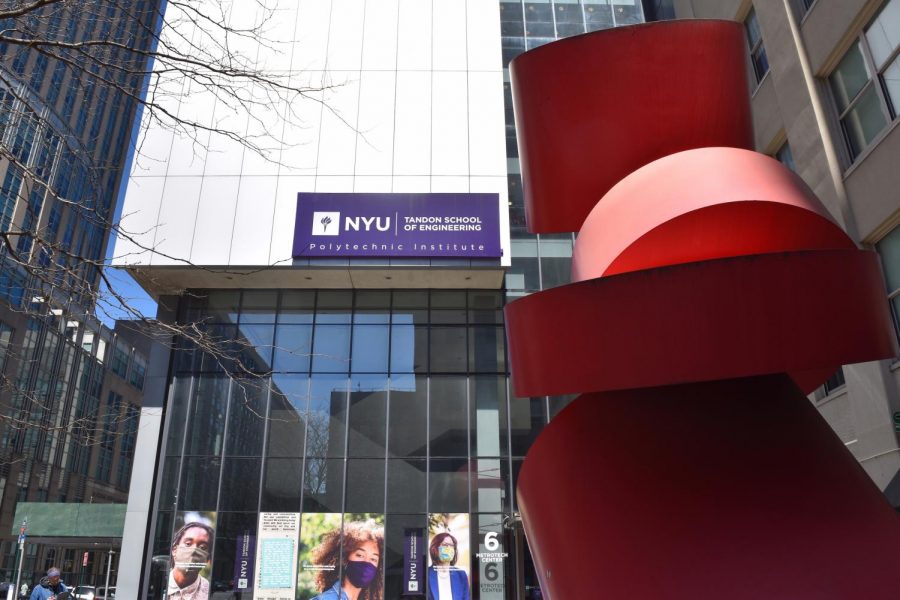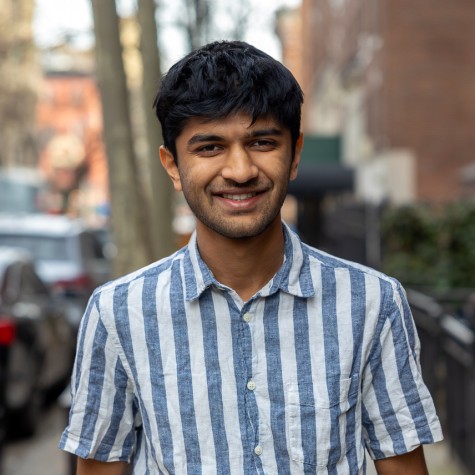Facebook disables accounts used by NYU political advertising researchers
Accounts and pages associated with the Ad Observatory project at Tandon were disabled in a move researchers called ‘disgraceful.’
The Tandon School of Engineering is located in Brooklyn. Facebook disabled several accounts and pages associated with a Tandon political advertising research project. (Staff Photo by Ryan Kawahara)
August 4, 2021
Facebook has disabled the accounts of researchers at the NYU Ad Observatory, a project developed by the Tandon School of Engineering that documents and analyzes Facebook political advertisements, the social media network announced in an Aug. 3 press release.
“NYU’s Ad Observatory project studied political ads using unauthorized means to access and collect data from Facebook, in violation of our Terms of Service,” Facebook’s press release reads. “We took these actions to stop unauthorized scraping and protect people’s privacy in line with our privacy program.”
Laura Edelson, a PhD candidate at Tandon who helps oversee the Ad Observatory project, posted a thread on Twitter shortly after the announcement in which she described the Ad Observatory’s work and the result of Facebook’s action. She also emailed a statement to Bloomberg.
This evening, Facebook suspended my Facebook account and the accounts of several people associated with Cybersecurity for Democracy, our team at NYU. This has the effect of cutting off our access to Facebook's Ad Library data, as well as Crowdtangle. 1/4
— Laura Edelson (@LauraEdelson2) August 4, 2021
“Facebook is silencing us because our work often calls attention to problems on its platform,” Edelson wrote in the statement to Bloomberg. “Worst of all, Facebook is using user privacy, a core belief that we have always put first in our work, as a pretext for doing this. If this episode demonstrates anything it is that Facebook should not have veto power over who is allowed to study them.”
Damon McCoy, an assistant professor of computer science and engineering at Tandon, said that Facebook’s justification for its action was unfounded. Facebook is arguing that the Ad Observatory project poses a threat to user privacy.
“It is disgraceful that Facebook is attempting to quash legitimate research that is informing the public about disinformation on their platform,” McCoy said in a statement published by Edelson on her Twitter account. “Facebook should not be able to cynically invoke user privacy to shut down research that puts them in an unflattering light, particularly when the ‘users’ Facebook is talking about are advertisers who have consented to making their ads public.”
NYU spokesperson John Beckman also criticized the move, and affirmed the university’s support for the project.
“Facebook’s actions are regrettable,” Beckman said in an email to WSN. “Our researchers are undertaking important, legitimate research, and the impediments that Facebook has put in their way are disappointing and, from our perspective, unjustified.”
The Ad Observatory project was founded in 2020 and is part of the Center for Cybersecurity at Tandon. Using information gathered by volunteers who have downloaded a browser extension, Ad Observatory researchers collect and archive political advertising data, which they then make available to journalists and the public.
Facebook publishes a database of information about political advertisements purchased through its service. However, the company does not include information about how it uses its demographic selection tools to target certain user demographics with certain ads — a gap the Ad Observatory fills by correlating the political advertising volunteers view with their demographic information.
In the months leading up to the 2020 presidential election, the project was used to show that Facebook had failed to correctly label advertisements paid for or promoted by a political entity, according to a Buzzfeed News report.
Facebook sent the Ad Observatory researchers a letter in October 2020 demanding they cease their work, claiming their project had violated the social media network’s terms of service — a demand the researchers refused to comply with. NYU’s administration issued a statement at the time saying the university would continue to back the project.
“NYU supports its researchers in their important work, and believes they have a right to pursue it,” Beckman said in an Oct. 27, 2020, press release. “We will be working to enable the research to continue.”
Facebook’s October 2020 letter was also criticized by Sen. Amy Klobuchar.
“It’s unacceptable that in the middle of an election, Facebook is making it harder for Americans to get information about online political ads,” Klobuchar told the Wall Street Journal.
Facebook’s action against the researchers’ accounts will prohibit them from continuing their work, practically crippling the Ad Observatory project, Edelson wrote on Twitter. However, she called on volunteers to continue to install the project’s browser extension, thereby donating their advertisement data.
“The work our team does to make data about disinformation on Facebook transparent is vital to a healthy internet and a healthy democracy,” Edelson said.
Contact Arnav Binaykia at [email protected].
This story was updated on Aug. 9, 2021 to include a statement from NYU spokesperson John Beckman.

























































































































































